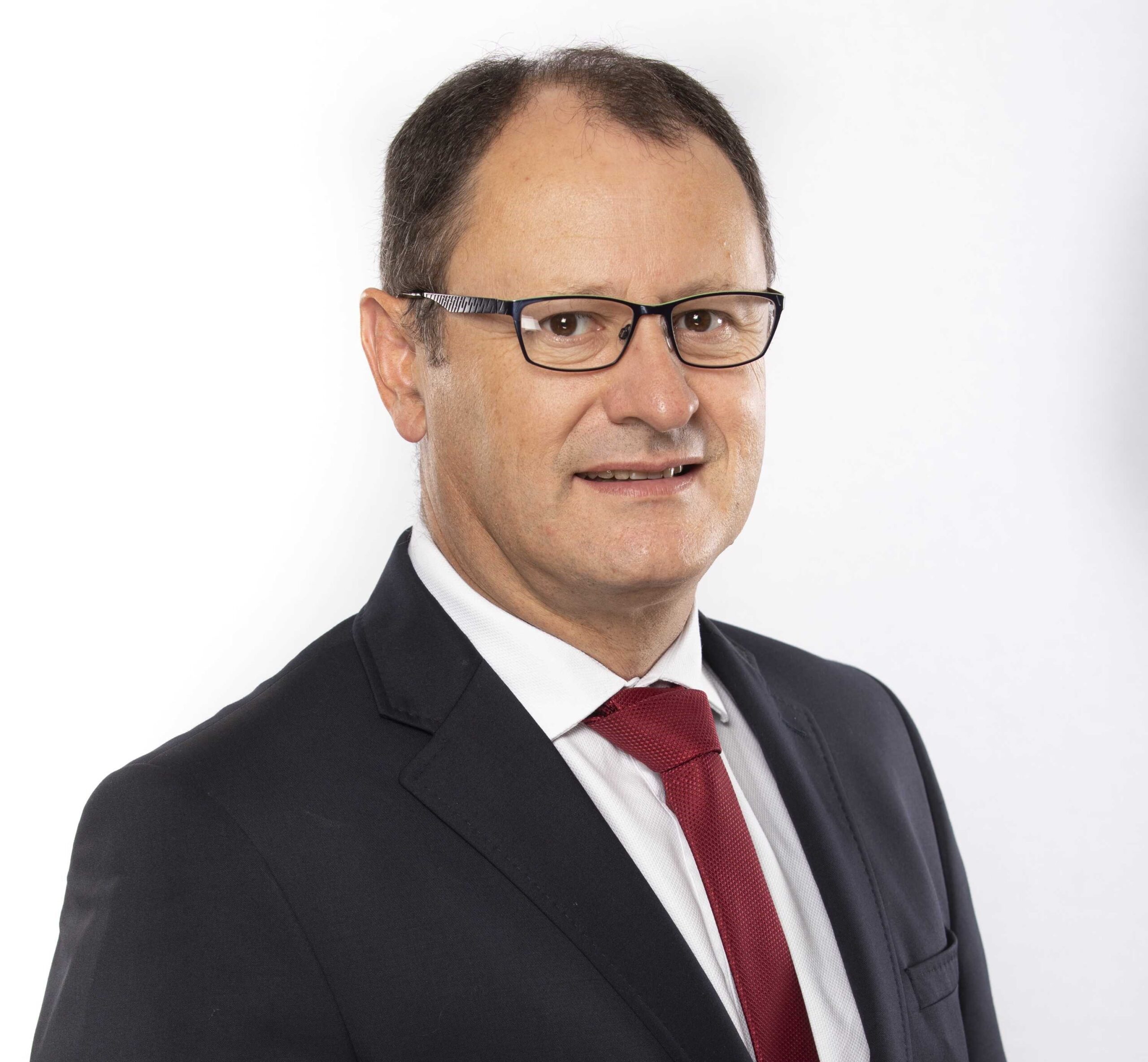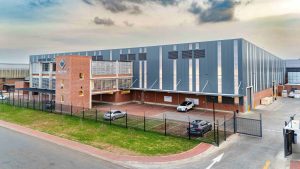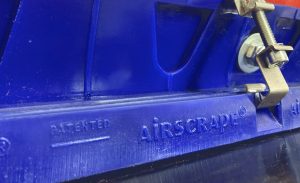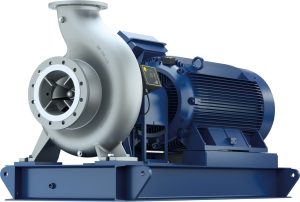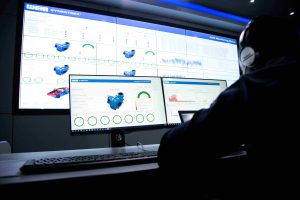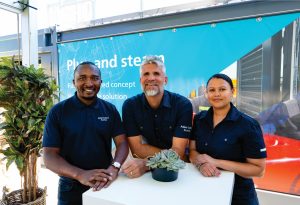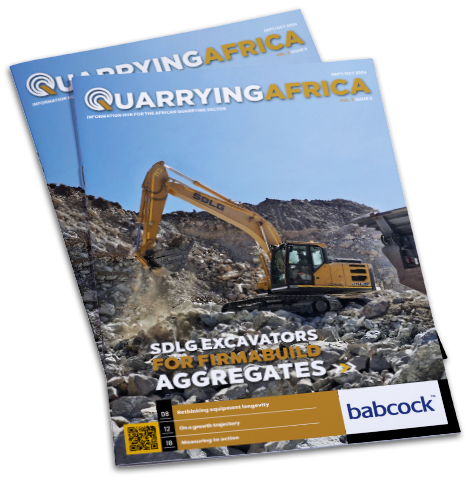Afrimat has released results for six months ended 31 August 2023, with Group CEO, Andries van Heerden, saying that the group’s strategy to diversify between commodities and revenue streams, coupled with stringent capital allocation, has enabled it to weather economic and commodity shocks.
“For most of the 2023 calendar year and in the period under review, Afrimat invested substantially in projects that are expected to yield fruitful returns and further strengthen our product diversity and competitive advantage in the future,” he adds.
Going on to say that the group managed the volatility of the iron ore price by combining local iron ore sales at defined prices with the export sales. “Pleasingly, the group also experienced a significantly improved contribution from the Construction Materials segment,” he says.
Diversification and efficiency improvement initiatives remain the cornerstone of the group’s strategy and are used to counter economic impacts which are beyond the control of management.
Financial results
Group revenue increased by 9,6% from R2,6-billion to R2,8-billion. Operating profit increased by 4,3% from R512,2-million to R534,1-million, resulting in an overall operating profit margin of 18,8%. Despite being impacted by loadshedding and a general economic slowdown in certain segments, the impact on the Afrimat Group is not material.
Headline earnings per share remained satisfactory with an increase of 4,4% from 252,2 cents to 263,4 cents.
The balance sheet of the group remains strong with a net cash balance of R278,7-million. Net cash from operating activities of R577,5-million was generated. The debt: equity position remains favourable at 6,2% (February 2023: 4,7%).
Afrimat declared an interim dividend of 40,0 cents per share.
Operational review
At Afrimat all operating units are strategically positioned to deliver outstanding customer service, whilst acting as an efficient hedge against volatile local business conditions with a product range which is wide and diversified.
The Bulk Commodities segment, consisting of the iron ore mines and an anthracite mine, contributed 72,3% to the group’s operating profit.
The sustained strong performance was largely due to the advantages of a meticulously executed iron ore strategy which saw significant improvements in domestic sales volumes. Although international iron ore sales volumes reduced by 10% due to rail limitations this decrease was offset by a favourable Rand/US$ exchange rate and the increased local iron ore sales volumes. “Iron ore exports have continued to generate strong cash flow for the group in line with the export allocation on the Saldanha rail line,” Van Heerden says.
The iron ore mines recorded an overall increase of 29,7% in iron ore sales volumes compared to the same period in the previous year, with local sales tonnes increasing from 247 748 to 493 184 and international sales tonnes decreasing from 428 504 to 383 924.
Driehoekspan, which formed part of the Coza acquisition, is being brought into production to maintain export volumes and add small volumes of manganese sales. The combined iron ore mines have a life of mine in excess of 15 years.
Optimised efficiencies continue to result in cost savings and in turn have countered the rise in input costs and fluctuations of the international iron ore price.
The Nkomati anthracite mine contributed 18,1% to the segment’s revenue for the period. It produces a high-quality product sold into the local market, as a replacement for imported anthracite, and is recognised as a consistent, reliable supplier of anthracite.
Extraction of the first anthracite from the underground mine and establishing two additional opencast pits will ensure a consistent feed to the plant. “Although the ramp-up to steady state was slightly delayed, post the period end, processing volumes and logistics show steady improvement,” Van Heerden explains.
In the Industrial Minerals segment, businesses across all regions delivered satisfactory results, however, the impact of loadshedding was felt directly and also indirectly by certain customers which cut back on volumes and this resulted in a decrease in operating profit of 13,1% from R36,8-million to R32-million.
The Construction Materials segment experienced a significant improvement in operating profit which increased by 113,5% reaching R156,1 million from the previous comparable period of R73,1-million. Van Heerden explains this was due to, “Efficiency improvement initiatives which proved to be successful across the segment. Increased activity in road and rail projects resulted in stronger demand for products which are used in roadbuilding, rail and infrastructure projects.”
Revenue increased by 26,5% to R1,2-billion due to higher volumes and marginally better pricing in the period.
Afrimat recently announced the exciting acquisition of 100% of the shareholding in Lafarge South Africa. The acquisition includes several well-positioned and resourced aggregate quarries, an integrated cement plant, cement grinding plants, cement depots, readymix batching plants and high-quality fly-ash sources which is an important extender in the cement industry.
All necessary documentation pertaining to the conditions precedent have been submitted and approval from the South African Reserve Bank has been received. Afrimat is still awaiting approval of Section 11 and the Competition Commission, which is expected to be received before the end of the F2024 financial year.
Future Materials and Metals is a segment that was added to the Group’s operational segments in the prior period in support of its diversification strategy.
Glenover which is the segment’s first project, diversifies Afrimat’s exposure wider than ferrous metals and aligns it to global trends such as the advancement of technology for decarbonisation (through rare earth minerals) and food security (through fertiliser products). Glenover is a greenfields project that has begun with its first production during the period and is in a ramp-up phase.
“The project is currently focused on the processing of high-grade phosphate and single superphosphate (SSP). The mine is in the final stages of building the SSP plant, with commissioning taking place towards the end of F2024,” says Van Heerden.
The group is in the process of ramping up this operation, with the construction of its high-grade optimisation phosphate plant already completed.
Sustainability
The basis of performance from Afrimat is premised on a culture of consistently delivering and where employees are the base of the organisation. During the period, the total number of employees rose to 2 824, with 177 new appointments within the past three months. “Good employee relations are critical and were maintained in the Group, with no formal labour actions or disputes,” Van Heerden indicates. Wage negotiations across the group were concluded and settled within the budget.
Learning and development remain an integral part of the group’s success and focus. Afrimat proudly nurtures a pool of 137 learners and graduates, which serves as a valuable talent pipeline for the future. Furthermore, the Group actively supports talent development by providing staff bursaries, and various Development programs, some of which are presented in conjunction with tertiary institutions from renowned business schools.
Afrimat has 45 mining rights in place and a dedicated team to liaise with the respective governing bodies. “We have proudly achieved another milestone on health and safety, recording the lowest lost time injury frequency rate in the group’s history,” Van Heerden says.
Afrimat has a target in place to decrease carbon emissions by 32% by 2030.
Outlook
Van Heerden indicates that, “The group’s future growth will be driven by the successful execution of its proven strategy, recent acquisitions and a wider product offering to the market, while ensuring optimal performance from the group’s existing asset base through continuous improvement.”
In the new Future Materials and Metals segment, the focus is to ramp up the production of high-grade phosphate as well as the SSP and to execute the next stages of the project as seamlessly as possible.
The continued implementation of the internal efficiency drives with new technology, has proven to be highly successful, with van Heerden going on to indicate that, “these efficiency initiatives are aimed at countering inflationary mining cost increases.”
The investment into the Nkomati anthracite mine by opening the underground shaft in addition to the two opencast pits is finalised and the focus is to reach a steady state of production as soon as possible.
“Volumes are expected to ramp up further in the second six months and the processing plant has been upgraded to take on the additional volumes. Accordingly, it is expected that there will be an improved performance from this asset in the second six months,” he says.
The Industrial Minerals segment successfully installed generators at Vredendal and Marble Hall, which are assisting in countering the impact of loadshedding. Given this investment, a recovery is expected by this segment.
Once all conditions precedent have been met for the Lafarge acquisition, this will broaden the Construction Materials segment significantly. Closure of the deal and the integration into Afrimat will be critical to the acquisition’s success.
Van Heerden concludes by saying that, “The operating environment in South Africa remains challenging, but Afrimat continues to see value in its diversification strategy. Cost reductions and efficiency improvement initiatives remain the cornerstone of the Group to counter these economic impacts.”
